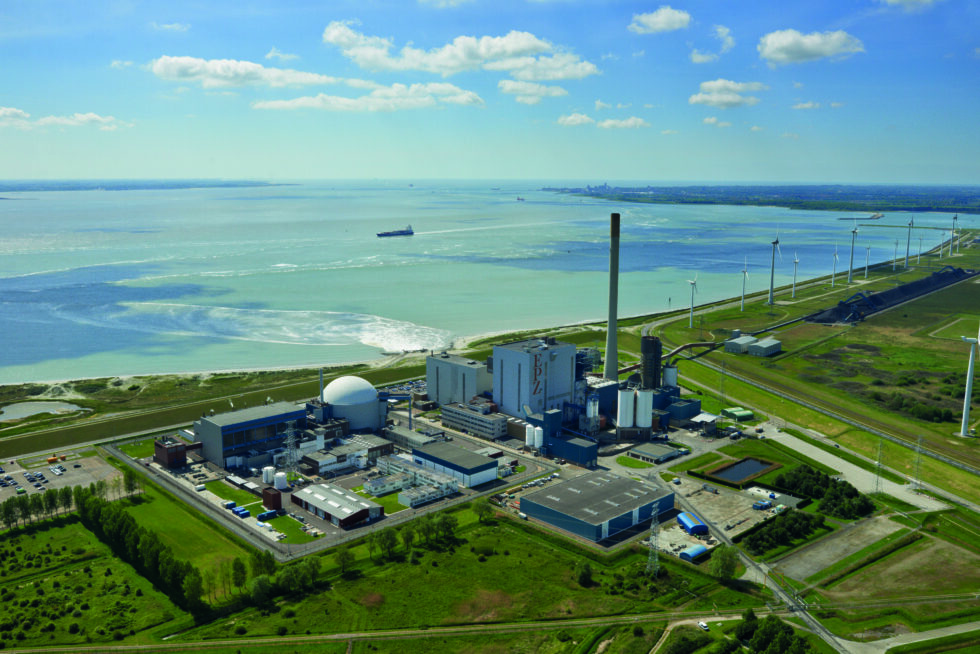
Cooperation on nuclear safety
The Netherlands needs to improve cooperation with Belgium and Germany to be properly prepared for a nuclear accident with cross-border consequences. The Dutch Safety Board comes to this conclusion in its report entitled “Cooperation on Nuclear Safety” which was published today. In addition to improving the crisis plans, the countries need to conduct more joint exercises , and arrange both the mutual coordination of the measures to be taken and the communication in this regard. The Dutch Safety Board takes a positive view of the cooperation between the countries aimed at preventing a nuclear accident occurring. However, the Board does believe that the competent authorities must pay greater attention to society’s concerns and must improve the provision of information to citizens.
Cross-border preparations for a nuclear accident need to be improved
The Dutch Safety Board started its investigation because of the public concern with regard to incidents at the Belgian Doel and Tihange nuclear power plants. The investigation of the Board involved not only these nuclear power plants, but also the Borssele nuclear power plant (in the Netherlands) and Emsland nuclear power plant (in Germany). The parties concerned in the Netherlands, as well as in Belgium and Germany, have contributed to the investigation. In the Dutch Safety Board’s opinion, this reflects an open culture in which parties are prepared to provide an insight into their working processes.
Cooperation to improve the safety of nuclear power plants
Nuclear power plants are subject to stringent safety requirements. The competent nuclear regulatory authorities in the countries concerned supervise compliance with these safety requirements. In addition to this, there is an international system in place to ensure that countries adequately perform their duties with regard to the safety of their nuclear power plants. The Dutch Safety Board has no reason to doubt this system. The investigation did not focus on whether the nuclear power plants are safe, but on how the Netherlands cooperates with its neighbouring countries in regard to the nuclear power plants.
Despite the countries themselves being responsible for the safety of their nuclear power plants, the Dutch and the Belgian, and the Dutch and the German nuclear regulatory authorities consult with each other on this on a regular basis. They share information about the safety of the nuclear power plants and make use of each other’s knowledge and expertise. As such, the nuclear regulatory authorities know what is going on at the nuclear power plants on the other side of the border and they can learn from each other.
Cooperation on crisis management
The likelihood of a serious nuclear accident at one of the nuclear power plants in question is small. But if a nuclear accident were to occur, it is important that countries coordinate their crisis management approach. The Dutch Safety Board has concluded that cooperation has partly been arranged on paper, but that it probably will not run smoothly if a nuclear accident were to occur in reality.
The Board has reached this conclusion based on the following:
- Not all nuclear crisis plans properly reflect the cross-border nature of a nuclear accident. Furthermore, the plans have been exercised only to a limited extent.
- In the event of a nuclear accident, measures must be taken to protect the people living in the vicinity of the nuclear power plant against radiation. The preparation of these measures differs between the countries though, creating a risk of residents on one side of the border receiving instructions that differ from those received on the other side of the border. This could lead to confusion and unrest amongst the population.
- The agreements that the Netherlands has made with Belgium and Germany on crisis communication do not take sufficient account of differences in language and culture.
- The Netherlands has not entered into agreements with Belgium and with Germany on joint decision-making in the event of a nuclear accident in the border region.
At the same time, the Dutch Safety Board concludes that cooperation is well prepared in some areas. For instance, the Netherlands, Belgium and Germany notify each other of an imminent emergency at a nuclear power plant as quickly as possible. They also have access to each other’s radiation measurements and technical data, so that they can use this information in the event of an accident.
Information to citizens
Reports on incidents at nuclear power plants can cause unrest among citizens. In its investigation, the Dutch Safety Board has reached the conclusion that authorities who make decisions on nuclear power plants pay too little heed to those concerns. This is reflected in such things as the information that they issue to the public. For instance, citizens will have difficulties trying to understand the information about incidents at nuclear power plants. In addition, information about licensing procedures does not reach all local residents for whom these procedures are relevant. The Board states that the parties must have greater consideration for social concerns and address them in their communication.
Recommendations
To the Dutch State Secretary for Infrastructure and Water Management the Board recommends the following:
- 1. Improve – together with the responsible government members in Belgium and Germany – the cross-border cooperation aimed at limiting the potential consequences of a nuclear accident.
- 2. Enter into agreements with Belgium and Germany on supranational decision-making in a crisis situation that arises from a cross-border accident at the Borssele, Doel, Tihange or Emsland nuclear power plants
To the Dutch Authority for Nuclear Safety and Radiation Protection, the Board recommends the following:
- 3. Recognise the concerns among the Dutch public about the safety of nuclear power plants and address them.
